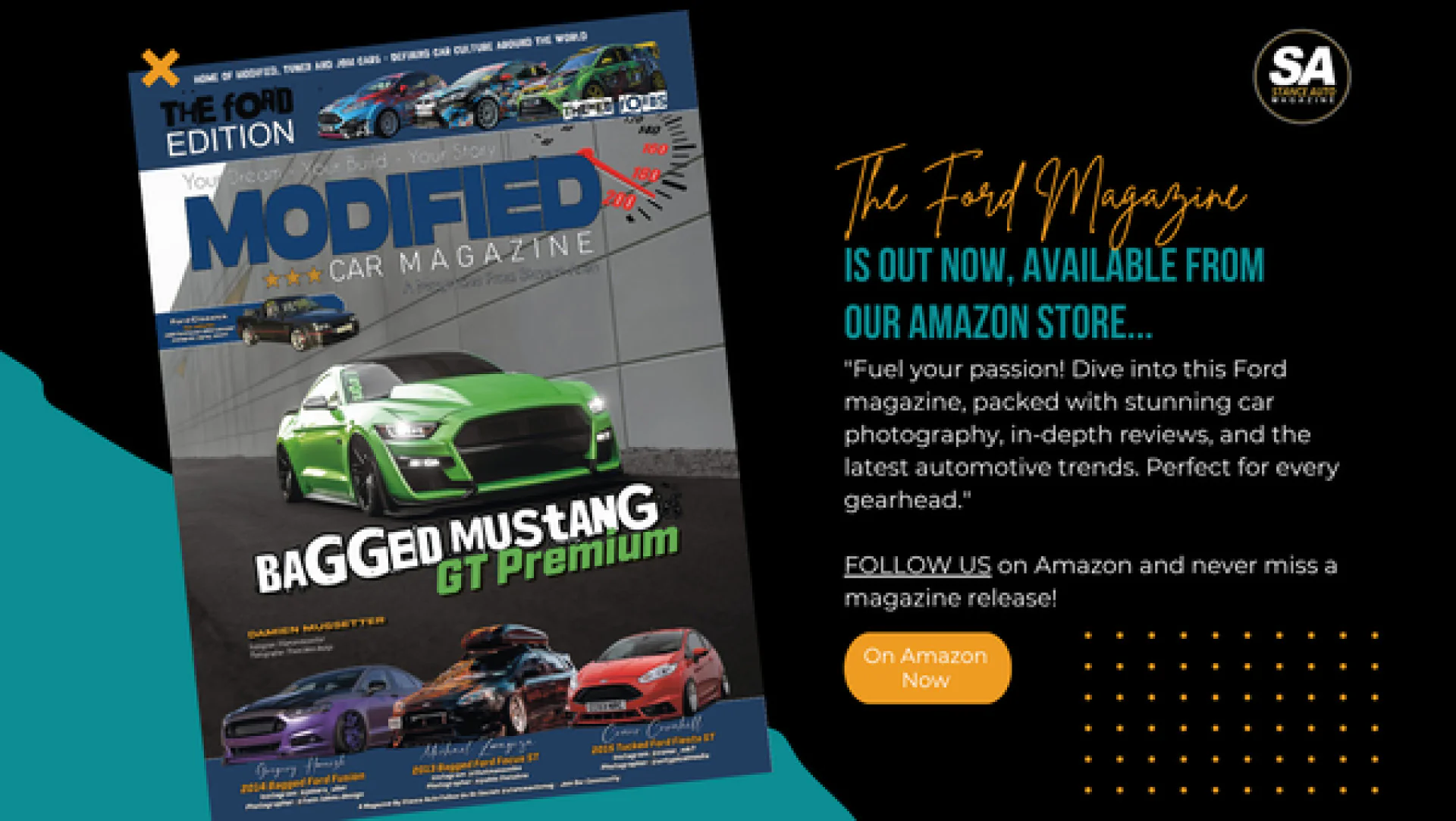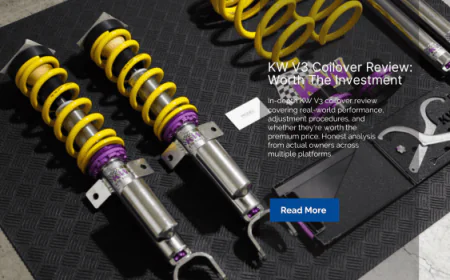What is the best oil for my car?
Wondering 'what motor oil should I use?' Follow this guide on understanding oil weights, and quality ratings, and finding the vehicle manufacturer's recommendations for optimal performance.

Welcome, Stay updated with the latest news, in-depth features, and expert insights. Join our community of like-minded enthusiasts and elevate your automotive experience. Explore Stance Auto Magazine today!"
>>> Submit Your Stories Here <<<
Order Your Printed Magazine Here!!
Choosing the Right Motor Oil for Your Vehicle
Whether you're changing your own oil or having it done at a service station, using the manufacturer's recommended oil is vital to engine performance and longevity. But with countless oil options on shelves, how do you know which one is best? This article will walk you through the key considerations in order to select the optimal motor oil for your car.
Understanding Oil Ratings and Weights
The two critical pieces of information you need to choose what oil to use are the oil viscosity (weight) and quality rating.
Viscosity refers to an oil's thickness and ability to flow at certain temperatures. Thinner oils have lower numbers (e.g. 5W or 10W), allowing them to circulate faster from cold starts. The "W" refers to winter or cold temperatures. Higher viscosity numbers (e.g. 20 or 50) are thicker oils that maintain film strength at high temperatures.
The oil rating, such as API SN Plus or ILSAC GF-6A, relates to its quality, additives, and ability to meet certain specifications and standards from agencies and automobile manufacturers. Always ensure any oil you use meets the latest API and ILSAC requirements.

How to Find Your Vehicle's Recommended Oil Specs
The best way to determine precisely what oil you need is to consult your owner's manual. Every vehicle has unique requirements and recommendations when it comes to oil weights and quality standards.
Key Questions About Choosing Engine Oil
When selecting motor oil, most drivers have some common questions. Below are answers to some of the top FAQs regarding picking the right oil for your car.
How do I know what oil to use in my car?
As emphasized above, checking your owner's manual is the most surefire way to learn exactly what oil specifications your vehicle needs. This will outline the recommended oil viscosity grades along with the necessary quality ratings from API, ILSAC, ACEA, and potentially other standards organizations.
Beyond checking the manual, you can use online tools and guides to look up oil recommendations by entering details like year, make, model and engine. Reputable suppliers like Castrol and Valvoline have the resources to assist with oil selection. If still unsure, your dealership service department can also help or provide documentation on the required oil standards.
Which is the best quality engine oil?
For most modern vehicles, an oil that meets the latest API SN Plus (or SP) and ILSAC GF-6A (or GF-5) ratings delivers top quality and performance. These specs indicate full synthetic oils with excellent wear protection, fuel economy, and capability to operate in a wide temperature range. High mileage oils also have extra conditioners. Look for approval from vehicle manufacturers too for optimal results.
Top brands that meet the latest standards include Mobil 1, Castrol Edge, Valvoline SynPower, and Pennzoil Platinum. Consult Consumer Reports or J.D. Power rankings to see performance evaluations for leading motor oils.
What car is 5W-30 oil for?
Thanks to advanced synthetic formulations, 5W-30 viscosity oil has become very commonplace and suitable for many vehicle makes and models today. Manufacturers frequently recommend 5W-30 conventional or synthetic oil for hot climates since it provides easier cold starts along with strength at higher temperatures.
As just a few examples, 5W-30 oil is the factory fill for numerous Ford, GM, Honda, Toyota, Nissan, Hyundai, and Chrysler vehicles requiring a viscosity grade that balances wear protection and fuel efficiency. Refer to your owner's manual to see if 5W-30 meets your car's specifications. Using the improper viscosity can lead to engine issues over time.
What will happen if I use 5w40 instead of 5w30?
The slightly heavier 5W-40 oil may provide a bit more high-temperature film strength. But in vehicles calling for 5W-30, it's often best to follow that recommendation precisely. The owner's manual reflects extensive testing to arrive at that viscosity requirement.
Using 5W-40 instead of the recommended 5W-30 likely won't cause immediate problems if the oil meets all other quality standards. However, over thousands of miles it may result in somewhat increased oil consumption. It also may very slightly impact fuel economy ratings.
Sticking to the factory fill viscosity like 5W-30 helps ensure efficiency, performance, and longevity remain optimal per the engineering done for that engine. Check your manual for any definitive guidance if considering using an alternate viscosity.

Key Takeaways on Selecting the Right Oil
When it comes to motor oil, using the manufacturer's recommended viscosity and meeting quality ratings is critical - but it does not need to be confusing. Follow the guidelines in your owner's manual, consult online tools if needed, and choose a top brand that exceeds specifications. This ensures long engine life and performance.
Consult Your Manual as the Primary Reference
The owner's manual or online maintenance guide for your exact year, make and model should always be the first stop when determining what oil to use. While basic guides can provide general directions, your vehicle likely has specialized requirements based on its powertrain, climate testing, and desired performance standards. Beyond viscosity and rating, factors like oil change intervals and oil system capacities may differ across models.
Oil Brand Matters Less than Meeting Specs
With motor oil, brand itself generally matters less than using oil that exceeds your car manufacturer's formal standards. Lean towards top brands that commit significant R&D spending towards upholding the latest API, ILSAC and other auto industry specifications. Well-known names like Valvoline, Castrol, and Mobil 1 continually reformulate oils to surpass standards as new engine technologies emerge. But virtually any brand clearly labeled with proper ratings for your vehicle will suffice for suitable protection.
When in Doubt, Consult an Automotive Professional
Between your owner's manual, online tools, and this overview of critical oil selection criteria, choosing the right oil for your vehicle mostly involves a little diligent research. But don't hesitate to utilize more knowledgeable resources too. Service technicians at dealerships and mechanic shops have extensive experience with DIY oil change questions. They handle countless makes and models daily. Tap into their expertise whenever uncertain about matching oil viscosities and ratings to your vehicle.
Use the Recommended Oil for Engine Confidence
Modern engine technologies reflect immense R&D by auto manufacturers striving for performance, efficiency and durability. Following their oil requirements is essentially the “price of admission” to enjoy the tremendous engineering under your hood for years to come. Protect that investment by pouring in only the motor oil viscosity, quality, and formulation recommended for your specific vehicle. Take a few extra minutes upfront researching oil specifications to save time and money over the long run. Your engine will hum smoothly as thanks down the road.
So, what's your car story? Share it with us, and let's keep the engines of passion running!
Other Useful Sites To Check Out That We Have Partnered With To Bring You Even More Content
TUNINGBLOG.EU SWIPE AUTOMOTIVE RACEWARS USA DYLER.COM
Do you need a Quality Photographer? Our photographers are Available HERE
All of our Magazines can be found on Amazon, they Print and Deliver worldwide, Stance Auto can not be held responsible for the final print, and all complaints and returns must be directed to Amazon.
UKTM no: UK00003572459
 Like
1
Like
1
 Dislike
0
Dislike
0
 Love
0
Love
0
 Funny
0
Funny
0
 Angry
0
Angry
0
 Sad
0
Sad
0
 Wow
0
Wow
0

























































































.png)












![[HOONIGAN] Ken Block's GYMKHANA NINE](https://img.youtube.com/vi/_bkX5VkZg8U/maxresdefault.jpg)


















































































![[HOONIGAN] KEN BLOCK'S GYMKHANA SEVEN: WILD IN THE STREETS OF LOS ANGELES](https://cdn.motor1.com/images/mgl/2KlO4/s1/ken-block-london-tour-directors-cut.jpg)





















































